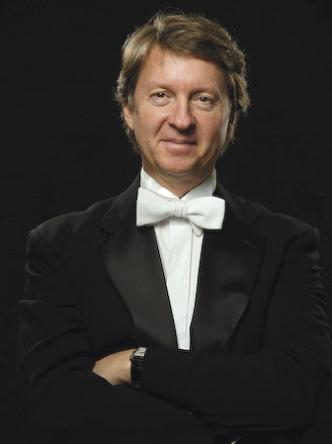American Classical Orchestra puts a quality stamp on music of Handel
The lingering impression from Wednesday night’s concluding Handelfest 2014 concert, played by the American Classical Orchestra and singers at Alice Tully Hall, is that New York City has its own bona fide early music orchestra, and a good one.
The ACO was initially founded by music director Thomas Crawford as a community ensemble based around Fairfield Academy in Connecticut, and took its current name and form in 1999. Cultivating historically informed performance techniques is a generational project, one that has achieved fruition in the sound of this ensemble.
By comparison, they don’t have the silvery finish of the English Concert, which brought Handel’s Theodora to Carnegie Hall last month, but that’s not a criticism. Their sound is a warm, satisfying, throaty blend of strings and double-reeds. Occasional wayward intonation seems a natural part of the context of period performance—a reminder the heterogeneity is an even greater virtue in this style of music making than in the world of modern orchestras.
During the Baroque, composing styles and instrumental sound, were also heterogenous, varying from time to time and place to place. The ACO’s program reflected that from just under its surface: two entr’acte openers, Concerto a due cori HWV 332 and HWV 333 from Handel’s mature period; the early Jubilate, HWV 279; and a rarity, the dramatic work Alceste, HWV 45.
The concertos are lively antiphonal pieces Handel wrote for his own oratorio performances, full of flourishes for the double-reeds and, in the latter, natural horns (an impressively burnished and limber section led by R. J. Kelley). The pieces are echt-Handel, not only in their form but in phrases, bits of which come from other works and others bits that found their way into even further compositions from the composer.
The Jubilate is a fascinating piece. Crawford introduced it as “workmanlike,” which is true enough. But this workman was a master builder, and even his plainer structures are solid and marvelously joined. Written for the signing of the Peace of Utrecht in 1713, this is one of Handel’s first “English” compositions.
Stylistically, it sounds like proto-Handel, the form built on intelligent, graceful counterpoint, but without the flourishes that would come later, and an unformed but clearly “English” national quality. The choral and solo vocal writing is superior—the composer is unsurpassed in setting the English language to music.
The best thing about the piece is that it brought the American Classical Orchestra Chorus to the stage, and they are as fine as the orchestra. The sound they cultivate is more colorful than the average period performance choir, and their modest size means it is always transparent and blends well with the instruments. The Jubliate has short solos and sections that feature a smaller soprano-alto-tenor-bass choir. Excellent singing from all the featured performers—soprano Amanda Crider, mezzo Solange Merdinian, tenor Timothy McDevitt and bass Joseph Beutel—with Merdinian particularly notable for her uncanny, beguiling timbre.
The singing was also terrific for Alceste. This piece is a real curiosity. The libretto comes from Tobias Smollett, prior to his career as a novelist, and the idea was to present a complete theatrical spectacle in the style that was all the rage in mid-18th century Paris. However, apparently due to financial problems, the piece never made it to the stage.
Alceste is also incomplete, in that the music is only part of the story—there were stretches of spoken dialogue that are now lost. And that this performance interpolated music from other pieces, including Il pastor fido and Concerto Grosso Op. 3, No. 2 (in another example, a recording makes uses of passages from Admeto) indicates that the composition itself did not survive intact.
This excellent production brought a great deal of the original intent to the stage: the lead roles of King Admetus and his wife, Alceste, are non-singing and were danced by Weaver Rhodes and Lindsay Jones. The choreography from John Heginbotham combined elements of ballet and modern dance, at times closely following the score, a la Mark Morris, while at others describing a lyrical counterpoint to the dance music, floating above like a silent vocal line.
The singing roles are for Calliope (soprano Marguerite Krull), Hercules (tenor Randall Bills) and Charon (baritone Robert Balonek). Handel’s vocal writing for Alceste is exceptional, an ideal balance of dramatic expression and technical delight, that certainly would have been a hit in London and Paris. The soloists were uniformly impressive in how they sang with beauty and attention to phrasing, even while negotiating Handel’s challenging ornamentation. Balonek was especially charismatic, rowing the dead across the River Styx (Alceste trades her life for her husband’s, then is rescued from the underworld for a happy ending all around). That scene is also the only weak mark in the piece, where Smollett’s repeated lines “Haste, haste, ye shades, away! Nor can I brook delay” lapse quickly into farce.
The chorus, again, was strong, and took easily to Cynthia Edwards’ staging. Maile Okamura’s costumes were simple and effective, setting the principals apart while not weighing the simple production down with period details. A gem of a work given a comparably lovely and finely carved performance. As enjoyable as it is to hear this music, the pleasure is greater for knowing that New York City has a period-instrument orchestra that can deliver the goods.
The American Classical Orchestra plays music of Mozart, Myslivecek, Beethoven, and Johann Strauss Jr. 8 p.m. June 5 at Alice Tully Hall. amerclassorch.org
